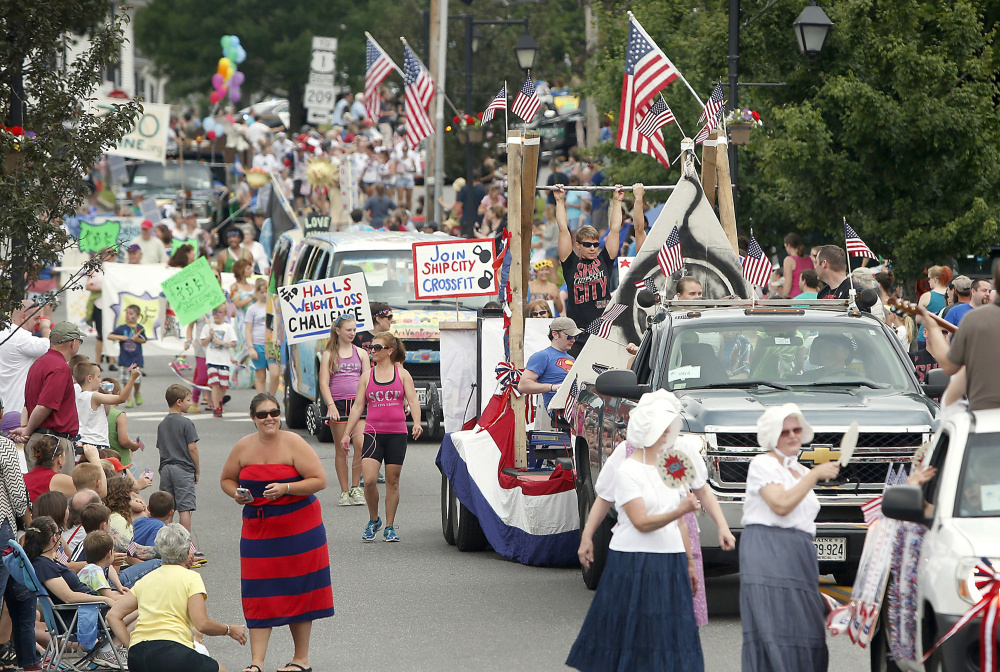John Adams, our second president, wanted the Fourth of July to be an annual patriotic festival.
“It ought to be celebrated by pomp and parade, with shows, games, sports, guns, bells, bonfires, and illuminations from one end of this continent to the other … ,” he wrote to his wife, Abigail, in 1776.
This year we should add one item to Adams’ list: A complete rejection of nationalism.
This may sound like the wrong day to do it, but it’s not. Patriotism is love of country, and a country isn’t the same thing as a nation.
One is a self-governing political entity; the other, a group of people who share a common culture. You can have one nationality spread out across many countries or many nationalities within the borders of one.
Nationalism is tribal loyalty, and it is an ideology that’s inconsistent with the spirit of ’76.
As we celebrate 240 years of independence, it’s disturbing to see nationalist politics on the rise here, challenging basic ideas of what it means to be an American.
It’s most obvious in the rhetoric of Donald Trump, who draws tribal lines that exclude immigrants, Muslims and others from full membership in the American nation as he defines it.
There have been nationalist voices throughout our history, but they usually came from marginalized fringe groups. Donald Trump is just one step away from the White House, and the concerted power of the Republican Party establishment couldn’t stop him from getting this far. His election would signal a seismic shift in the way Americans relate to each other and in the way the country relates to the world.
NOT JUST TRUMP
But it’s not just Trump. All over the developed world, global trade and technological advances have resulted in a concentration of wealth, the loss of industrial jobs and a threatened middle class. Random acts of terrorism against civilians by groups like al-Qaida and the so-called Islamic State have fueled fear of outsiders.
Far-right, anti-immigrant parties are gaining power in France, Hungary and Austria – where a nationalist candidate barely lost a presidential election last month. Anti-immigrant appeals played a role in Great Britain’s exit from the European Union.
Trump supporters say “he tells it like it is,” and what he tells them is classic nationalist dogma: Build a wall to keep out invaders; round up and deport millions of internal enemies; ban a religious group from entering the country; withdraw from international treaties and trade agreements; make America great again.
The way Trump alters and abandons his positions on issues from abortion to waterboarding, it’s fair to wonder whether he believes half of what he says. But nationalism is nothing to fool around with.
History shows that it’s a destructive force. It’s behind the worst atrocities ever recorded and was the spark that started two world wars at the cost of 100 million lives.
world of enemies
Nationalists always see a world full of enemies and celebrate their own unique virtue, wrote Holocaust scholar Hannah Arendt. They create their own morality, which justifies anything they do, said English writer George Orwell. “Actions are held to be good or bad, not on their merits, but according to who does them.”
A world full of nationalist actors can’t be at peace long.
It’s easy to confuse nationalism with patriotism. Americans, like Abraham Lincoln, have referred to our country as a “nation” because we aspire to have a common culture that includes everyone – “a new nation, conceived in liberty and dedicated to the proposition that ‘all men are created equal.’ ”
But the nationalism on the rise today is not what Lincoln was talking about at Gettysburg.
When Trump calls an American-born federal judge a “Mexican,” he is saying that some people can never become real Americans.
When he promises to arrest and deport 11 million people, or to stand at the border and deny entry to Muslims, he’s advocating actions that he would call crimes if they were committed against people like him.
He can wave the flag as much as he wants, but that’s not patriotism.
While we mark the day our forefathers rejected rule by a king, let’s reject the politics that seeks to divide us when we could be celebrating together. Liberals and conservatives should be able to agree at least on this: Nationalism has no place in this country.
Send questions/comments to the editors.



Comments are no longer available on this story